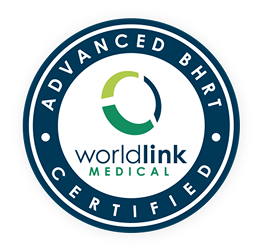Brain Fog & Memory Lapses in Perimenopause & Menopause
Feeling foggy, forgetful, or unlike yourself? Midlife hormone changes can disrupt sleep, mood, and focus. At Arcara Access in Boston and Westborough, you’ll get a clear, personalized plan that restores energy, steadies memory, and supports lasting clarity.
Reviewed by Kim Arcara, PMHNP-BC, MSN, August 2025
What Is Menopausal Brain Fog?
Brain fog is a set of cognitive changes linked to perimenopause and menopause. Many women describe fuzzy thinking, distractibility, or losing words in conversation. These shifts are temporary and often improve once sleep and hormones are supported.
If you find yourself forgetting names, repeating tasks, or struggling to focus, know that these symptoms are real and treatable.
What Causes Brain Fog During Menopause?
Hormones like estrogen and progesterone influence brain signaling, sleep, and mood. When they decline, recall and concentration can dip. Stress, night sweats, or blood sugar swings add further strain. With targeted care, most women regain clarity and confidence.
Symptoms of Menopausal Brain Fog
- Word-finding difficulties and short-term memory slips
- “Cotton-wool” thinking and poor focus after broken sleep
- Decision fatigue and trouble switching tasks
- Heightened anxiety or low mood that weighs on cognition
Quick Wins for Daily Clarity
- Sleep 7–8 hours each night
- Drink water regularly
- Start with a protein breakfast
- Take a short daylight walk
- Try a 90-second breathing reset
Why Brain Fog and Memory Loss Happen in Menopause
Hormone shifts affect neurotransmitters, disrupt sleep, and lower stress tolerance. Night sweats, mood changes, and blood-sugar swings add to the load. These issues are treatable with a clear plan, guided by targeted hormone testing and, when needed, additional labs or imaging.
Sleep issues: insomnia, night sweats, or apnea
Thyroid, iron, B12, and vitamin D status
Mood, anxiety, and medication effects
Diet, alcohol use, and glucose swings
Post-viral or long-COVID concerns (if applicable)
Myths vs. Facts
Myth:
Brain fog means dementia.
Fact:
In midlife, symptoms are usually reversible once sleep and hormones are stable.
Myth:
Supplements fix everything.
Fact:
They help when you’re deficient, but sleep, nutrition, and daily habits matter most.
Myth:
HRT always cures brain fog.
Fact:
HRT improves sleep and vasomotor symptoms, yet lifestyle remains essential.
Can Hormone Replacement Therapy Help Brain Fog?
For many women, estradiol and progesterone improve sleep and hot flashes that disrupt focus. Testosterone directly supports cognition, motivation, and mental clarity, often making the biggest difference for brain fog itself. Results depend on dose, delivery method, and the right progestogen. At Arcara Access, we use compounded bioidentical HRT hormones tailored to your needs.
Your 6–8 Week Relief Plan
We focus first on foundations, then fine-tune care for long-term relief.
Foundations That Move the Needle
- Sleep in a cool room with a steady schedule and morning light
- Meals packed with protein and fiber to steady daily energy
- Movement most days, plus strength training twice weekly
- Cognitive resets with timed focus blocks and breathing
Targeted, Personalized Clinical Steps
- Compounded BHRT when appropriate, with route and dose adjusted for comfort
- Non-hormonal options for symptom relief when HRT is not suitable
- Nutrient repletion with iron, B12, vitamin D, magnesium, and omega-3
- Mind-body strategies, including CBT-I and stress tools
Pros and Cons of Hormone Replacement Therapy
At Arcara Access, we use a compounding pharmacy to create individualized bioidentical hormones. This allows us to adjust doses precisely and effectively for your symptoms.
| Route | Pros | Watch-Outs | Notes |
|---|---|---|---|
| Oral Estradiol | Steady, convenient, well-studied | Low clot risk in healthy women under 62 | Improves sleep and hot flashes |
| Estradiol Cream | Flexible dosing, gentle on skin | Needs drying time | Good for fine-tuning therapy |
| Testosterone (cream, oral, or IM) | Most effective for brain fog and cognition | Requires dose monitoring | Multiple delivery options |
| Progesterone (oral) | Supports sleep and calms anxiety | Minimal grogginess | Taken at night; review within 2–3 weeks |
Menopause Treatment Map for Brain Fog
| Driver | What We Check | First Step | Next Step | Read More |
|---|---|---|---|---|
| Vasomotor sleep loss | Night sweats, sleep diary | Cooling strategies, sleep hygiene | HRT trial and dose adjustment | Bioidentical HRT |
| Hormone volatility | Symptom timing, FSH/E2 if indicated | Low-dose compounded estrogen ± progesterone | Adjust route/dose at 4–6 weeks; consider testosterone | Menopause Hormone Testing |
| Nutrient deficits | Ferritin, B12, vitamin D, magnesium | Replace deficiencies | Re-test at 8–12 weeks | Nutrition and Supplementation |
| Stress or anxiety | Screening tools, sleep onset history | CBT-I, breathing, relaxation strategies | Short-term non-hormonal medication | Emotional Wellness |
| Post-viral fatigue | History, post-exertional symptoms | Pacing, sleep support | Peptide therapy, if indicated | Peptide Therapy |
Self-Care and Supplements
Magnesium, omega-3, vitamin D, and iron or B12 can help when levels are low. We avoid mega-stacks and tailor dosing carefully. At Arcara Access, nutrition and supplements are built into your plan to keep support safe and effective.
Focused history and screening, checking your sleep, mood, current medications, and red flags
Targeted labs with menopause hormone testing plus thyroid, iron, B12, vitamin D, and glucose as needed
Personalized plan combining sleep steps, HRT or non-hormonal care, nutrition, and cognitive tools
Follow-up at 6–8 weeks to adjust therapy and confirm functional gains in energy, focus, and recall
Goal of Care: Steady sleep, fewer lapses, and clear, reliable focus.
Arcara Access has been a lifesaver in my menopause journey. I’m so grateful for the expertise, the care, and the attention that she’s given me!
Marcie M
FAQs About Brain Fog
Does menopause cause brain fog and memory loss?
Yes. Hormone shifts can affect recall and focus, but with targeted care, most women improve.
How do I know it’s not dementia?
Menopause brain fog fluctuates and is often tied to poor sleep or stress. Dementia worsens steadily and interferes with daily function. If you are concerned, schedule an assessment.
Will HRT help my menopause brain fog?
Often, yes. Estradiol and progesterone improve sleep and hot flashes, while testosterone directly supports cognition and mental clarity. At Arcara Access, bioidentical HRT helps when personalized.
What labs or tests are useful for diagnosing menopause brain fog?
Common labs include thyroid, iron, B12, vitamin D, and glucose. Menopause hormone testing may provide context, while imaging is only considered if other causes are suspected.
Which supplements actually work for menopause brain fog?
Supplements help most when deficiencies exist. Iron, B12, vitamin D, magnesium, and omega-3 are common. Nutrition and supplements work best when tailored to your needs.
How long until I feel better?
Most women notice functional improvements within 2–8 weeks, especially after sleep stabilizes and the right treatment plan is in place.
Can stress and poor sleep make menopause brain fog worse?
Yes. Stress, night sweats, and disrupted sleep can all affect memory and focus. Improving rest may ease symptoms, and options like emotional wellness strategies, nutrition support, and peptide therapy can help reduce brain fog.
What if I can’t (or don’t want to) use HRT?
We provide non-hormonal options such as nutrient support, stress reduction, and case-by-case medications. Emotional wellness, nutrition, supplements, and peptide therapy are included in our care.
Are diet and exercise worth it for menopause brain fog?
Yes. Protein-rich meals and regular movement, especially strength training, improve energy and focus.
When should I seek urgent medical review?
Seek immediate care for sudden or worsening symptoms, severe headache, weakness, or speech and vision changes.
Do you treat menopause brain fog in Boston and Westborough?
Yes. Arcara Access provides in-person and virtual care across Boston and Westborough with individualized treatment and follow-up.



